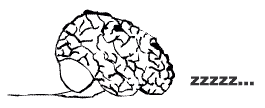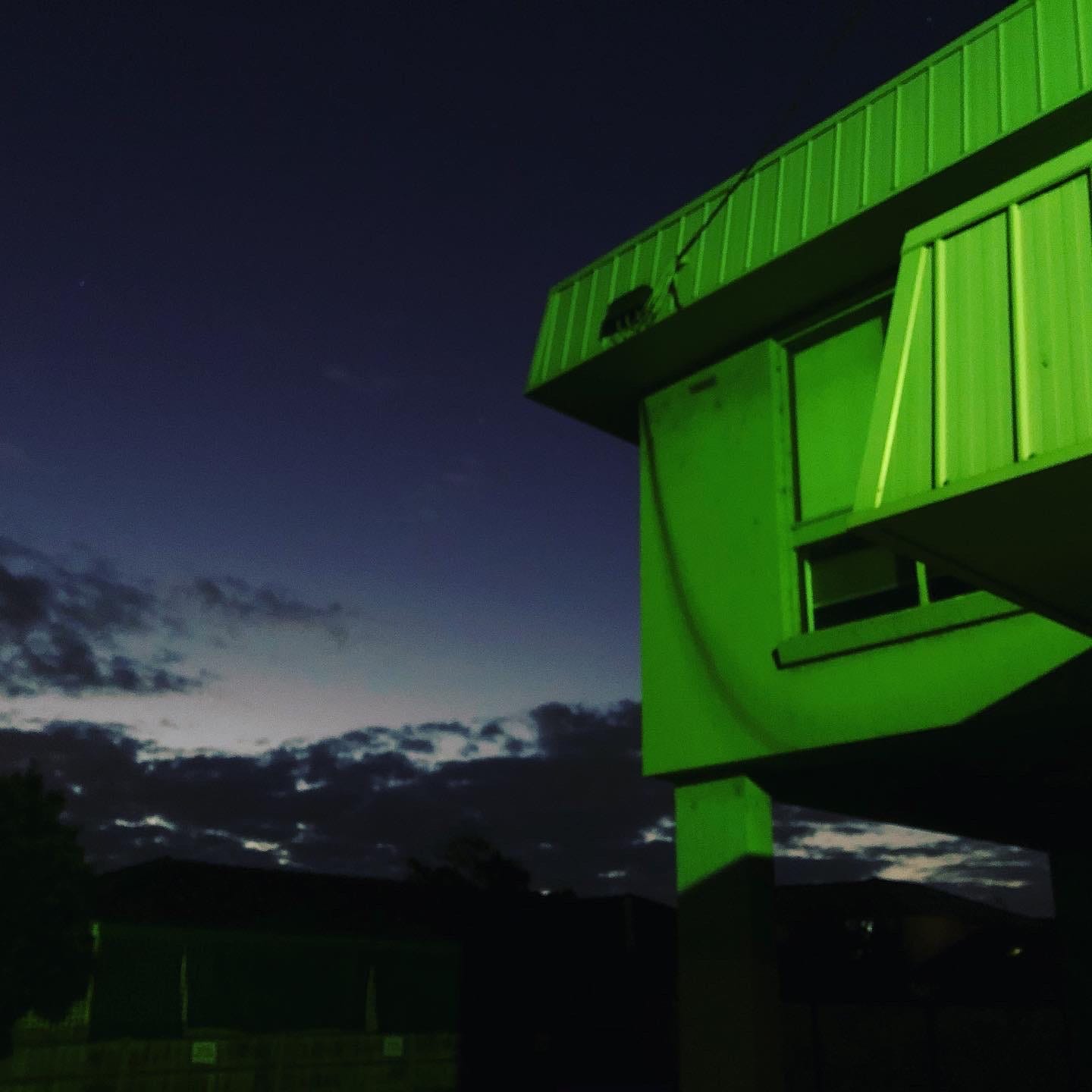Machine dreams
On the art of ghostwalking
The edge of reality
I
There have been times when walking has been the dominant force in my life, more compelling than music, films, books, friends, family. When I worked as a travel writer, I always walked. On assignment in remote places, walking was often the only way to get around. I was alive then to the sights, sounds and smells of the environment. I was alert to danger, excitement, risk and reward. I could write the next travel article in my head, stimulated to new creative heights by this freewheeling act of self-propulsion, teasing out themes and testing ideas as I traipsed from place to place.
Later, I became obsessed with driving. The virtual experience of viewing the world through the cinematic windshield formed the basis of a philosophical investigation that lasted decades.
Now, I am a walker again, but the act of walking has become robotic. It is the rhythm of a machine.
I dream of walking.
Machines can dream.
‘Deep dreams’, for example, are the webbed dreams of convolutional neural networks, psychedelic nightmares generated by algorithmic pareidolia.
Walking generates my nightmares.
Most days, I find myself longing to finish whatever it is I’m doing and just go. When I can’t walk, when circumstances conspire against me, I grow morose, quick to temper.
I always walk at night.
My suburb has a reputation for violence and I do not shirk from it. I march through the hotspots and danger zones, headphones on, nose buried in my phone, lost inside my mind. I am only dimly aware of the apparent danger, but then, sometimes, the beast bites back and I wake up.
I am lucky to be alive.
I walk long distances around the neighbourhood, rarely less than ten kilometres. The longest was seventeen kilometres. I am aiming for twenty kilometres, more, but I must clear certain commitments first.
Material responsibilities claw me back, so I must carve out the time, negotiate with the sprites of reality to take my leave of the world for a few hours.
One day, I will not return.
Unlike my former self, these days, when I walk, I do not simply travel from one place to another. The act of walking has nothing to do with ‘leisure’ or ‘purpose’.
These days, I follow an impulse that I can barely articulate.
When I first saw the film Paris, Texas, I recognised myself in Travis, the Harry Dean Stanton character. Travis is a walker. Walking for Travis is a fugue state. Travis’s personality is subsumed within the act of walking. Travis walks hundreds of kilometres across America. The reasons why Travis walks have long been forgotten, but are related to deep personal trauma. Travis walks, therefore he is.
Just before I submitted my novel Applied Ballardianism to the publisher, I began to walk the edgelands near my home because I wanted to flesh out the setting in the latter part of the book.
Those walks inspired a sequence in which the narrator of my book, night after night, also traverses a long loop around the industrial badlands. He does this initially because he has been jilted by his friend and collaborator, Philip. When they were working together, they filmed those very same edgelands for a planned documentary.
The narrator wishes to retrace the coordinates of their collaboration, but, post-Philip, he has no car, so he must walk, but then he forgets the reasons why he started and grows addicted to the act itself.
He becomes attracted to the danger of the edgelands, to its inhuman qualities, to its dangerous carloads of hoons that try to run him over, to the monstrous junkyard dogs that threaten to eat him alive.
Yes, it all sounds horribly familiar.
Isolation
The sequence in which my narrator walks hadn’t been invented at the time I commenced my research sorties.
I didn’t know at the time that it would be written.
It seemed to emerge fully formed from my research, a form of automatic writing, a deep psychological itch that demanded to be scratched.
When Applied Ballardianism was published, I re-read that sequence and thought it one of the most depressing in the book.
The narrator is on a suicide mission. He hopes to meet his end on those nocturnal walks, waiting for someone or something, some event, to put him out of his misery.
Obviously, the narrator is me.
Applied Ballardianism is my memoir disguised as a novel. It fictionalises my former life as a failed academic. Incidents from that life form the raw materials for the book. But within this sequence, a reversal has occurred. The book is directing me.
With Applied Ballardianism finally out in the world, I thought I would be cured of the impulse to march towards death. I thought that publishing the book would act as therapy, and that once it was on the page, there would no longer be any need to lose myself for hours on end in an unsafe environment.
I haven’t stopped walking since.
I am a madman.
To be clear, I don’t do it to ‘see the world’. I don’t do it to experience layers of history or the archaeology of the suburbs. I do it to escape myself, but I never can, so I keep on going and going but I always return to myself and the time-loop repeats.
When you walk obsessively like this, with no thought for the act of exercise itself, no thought for the care of your body, walking becomes an act of punishment.
A ‘proper’ walker would prepare snacks, ensure they’re well rested and hydrated before setting off, wear the appropriate clothing and footwear. But I take off in whatever I’m wearing, whenever I am struck dumb by the curse.
I never prepare. Invariably, I’m tired, underfed or depressed when I set off. I am never in an ‘ideal’ frame of mind.
I have returned from long suburban walks with a chronically aching spine, with shoulders that feel like they’ve been dislocated, with my groin chafing like sunburn, with a warped neck, with callouses on my toes the size of almonds, with strained knees, thighs and buttocks.
My mind is always wrecked.
I’ve never been much of a gamer, but there was one game I used to play quite a lot. It was a racing game, Gran Turismo, and I would be fascinated by the practice laps. You’d set a lap time and then try to beat your best. Your fastest time would appear as a ghost car racing ahead of you, and you would try to overtake that ghost car to beat yourself and record the new fastest time.
When I walk, I am always chasing the ghost walker, trying to overtake him and consign him to the past. Sometimes the outlines merge, but then they always slip out of phase and I am chasing myself again. If I do manage to stay ahead of my ghost walker, then I become the spectral outline, fading into the backbrain consciousness of the crazy old fool who’s condemned to stalk for all eternity the ghosts of his life.
When I walk, I am attracted to the shadows, to the machines, to the inhuman hum of power stations and electricity pylons. That’s why I walk at night.
I don’t want human contact. I don’t want to be around others. I don’t want to people-watch. I don’t want to feel part of the community.
I want to be a machine.
I don’t want to think. I want my mind to be flooded with alien signals. I want to rewire myself through exposure to the beyond.
About a month ago, I was near the power station that delineates the northern industrial wasteland from the suburban fringe. I was listening to some bone-rattling experimental soundscapes full bore on the headphones. I couldn’t hear the world around me, just the disorientating hum and vicious crackle from the soundtrack inside my head.
I was on my phone, tweeting some rubbish. Head down, lost and alone in the suburban hellscape. I’m always on my phone when I walk. Always. Like I said, I have no wish to see the world. I must experience extreme artifice.
I am so welded to the screen, to the art of ghost walking, that I associate people on Twitter with the area I was in when I first encountered them online.
That guy. Old satanic tree trunk by the side of the cement works.
Oh yeah, her. Discarded teddy bear at the back of the Buddhist temple.
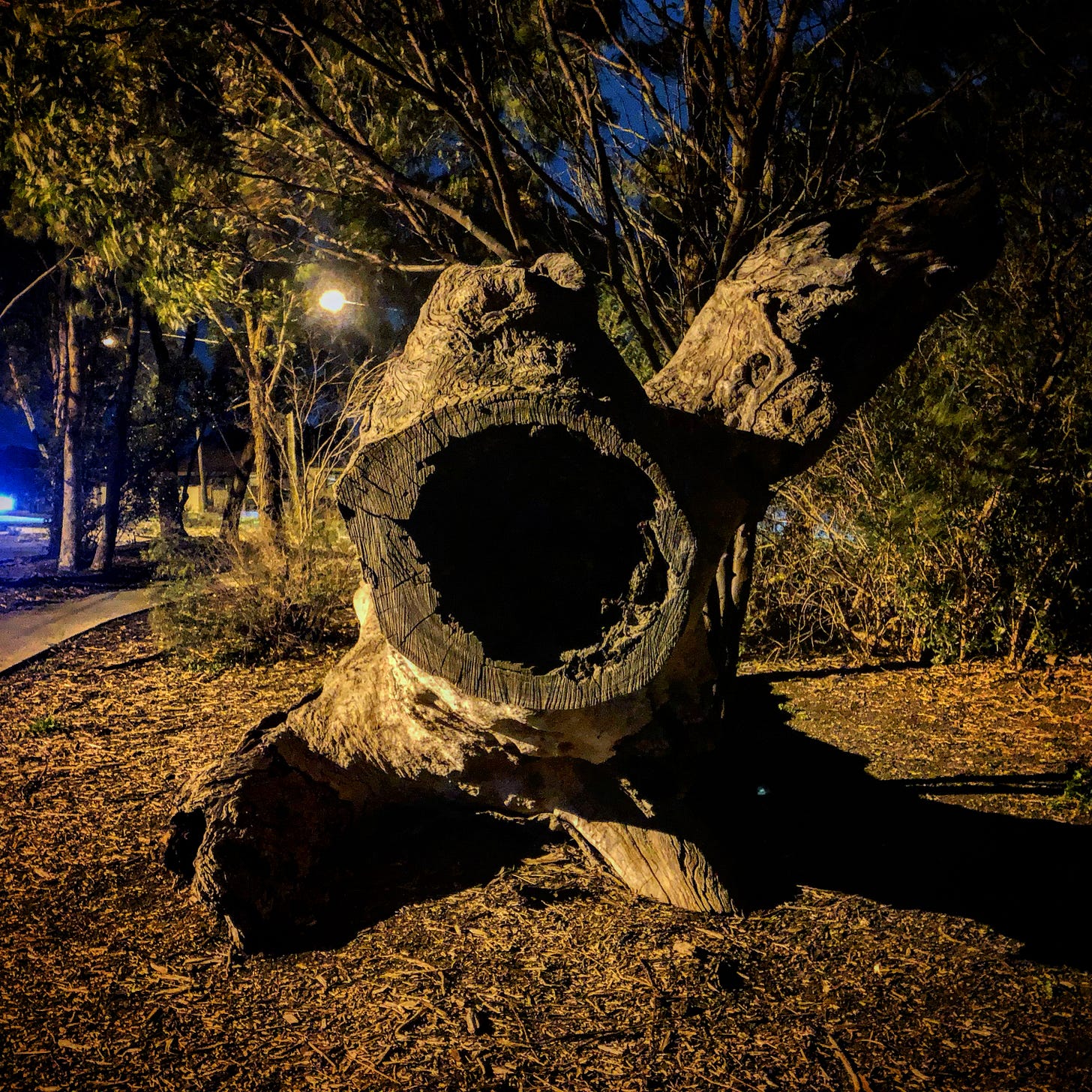
Satan’s trunk
So there I was, blind and deaf to the world, replacing my senses with the calculated pulse of machine intelligence.
A figure stepped from the shadows.
Behind him was another. Two males, both whacked out of their skulls. On crystal, I’d hazard a guess. Ice.
The one who approached me was gaunt and wired, ready to shadow box with whatever spectres he could see inside his head. But then the shadows became me.
I was the fleshy outline that filled out before him. His ghostwalker.
‘Got something sharp?’ he asked.
‘No. What? No.’
‘You got any piercings? Give me your fucking earrings, mate.’
‘I don’t have any.’
‘Show me your fucking ears.’
I showed him my ears. No earrings. Lucky he hadn’t heard of Prince Alberts.
‘Fucking idiot,’ he said.
‘Hey, listen, sorry I don’t have earrings. What do you need something sharp for?’
‘To open this phone. Put this SIM card in.’
‘OK, well, sorry again.’ I walked off.
‘Oi!’ he shouted.
I turned around.
‘Don’t be so fucking rude next time, alright?’
‘Uh, yeah. OK, mate. No worries.’
My mood was already sour but that tipped me right over the edge. I’d just been threatened by this lowlife so how come I was the rude one?
But then I realised that even the barbarians are offended by me. Even the dregs of humanity cannot wait to be rid of my stench.
I walked towards the forest of electricity pylons that festooned the energy park just across the freeway.
In times of the greatest depression, the most corrosive self-loathing, and the most hopeless nostalgia for moments that never were, I find myself drawn to pylons, whether by accident or design.
I consciously seek them out, or I just drift towards them, until I realise.
Here we are again.
The obsession has nothing to do with ‘psychogeography’, ‘Ballardianism’ or any other kind of urban cliche, strategy or theory.
I cannot explain the attraction, except perhaps for the machine analogy.
I simply walk alone.
That’s how it happens.
I am always alone, walking or not, because, like my narrator, I have lost all my collaborators. Or rather, I never had them in the first place, having invented the connections in my mind.
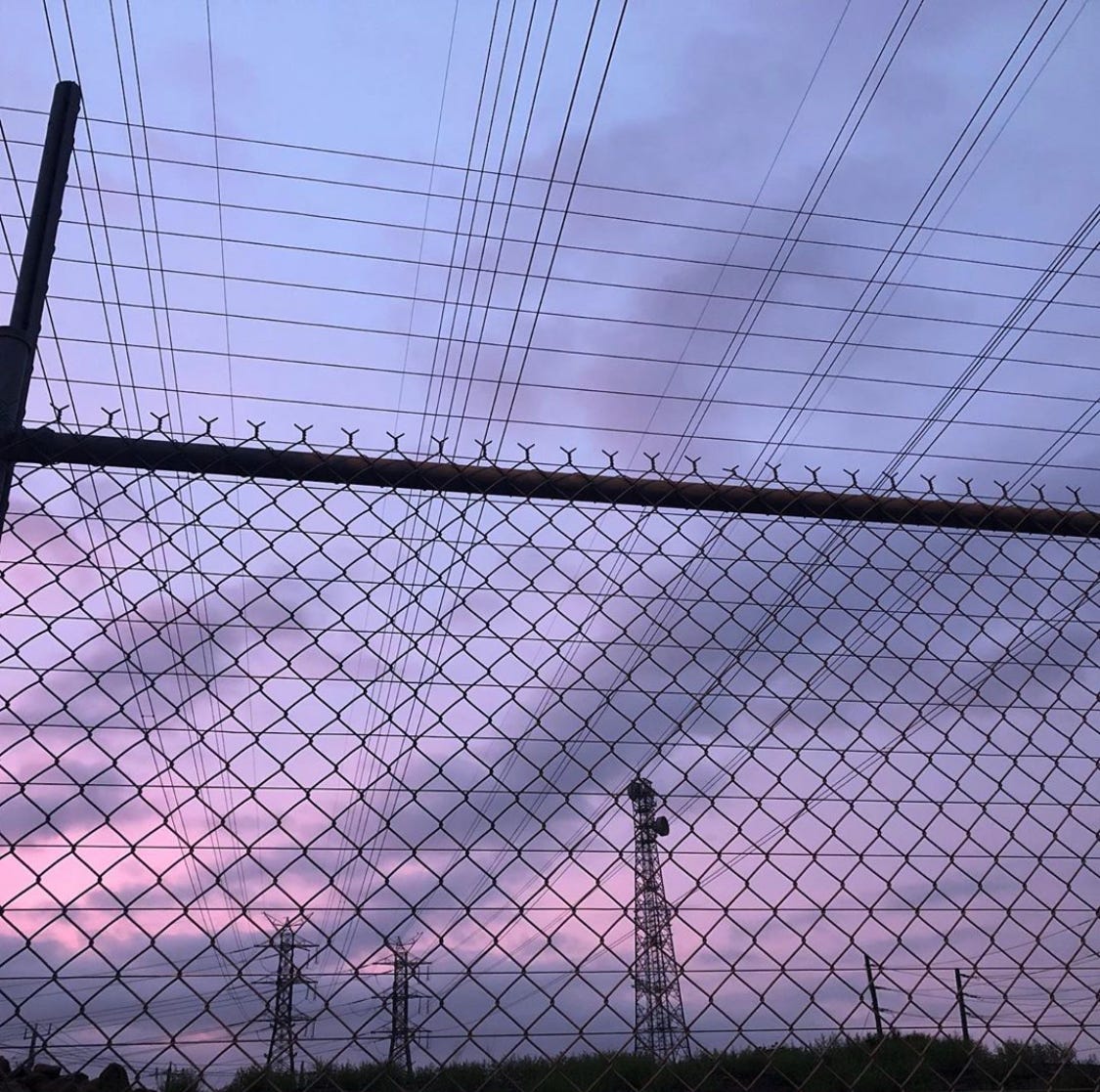
Skynet
I have taught myself to believe that I cannot be collaborated with.
I have amputated my friends like limbs.
I have tricked myself into believing that I cannot be loved.
I want to believe that I cannot be understood, but in fact I cannot allow myself to be known.
I am invisible, erasable, rewritable.
I play dumb when you want me to be smart. I won’t listen when you want me to hear.
I walk alone, always alone.
I follow the wires in the sky, over prohibited property, over private land. I risk the dogs, the guns, the criminals, the hoons. I search for an escape, for the crack in the sky that never appears, for the moment when I can look myself in the eye and say: ‘Enough.’
I wait for the blackout, for the release that never comes.
I wait until it does.
II
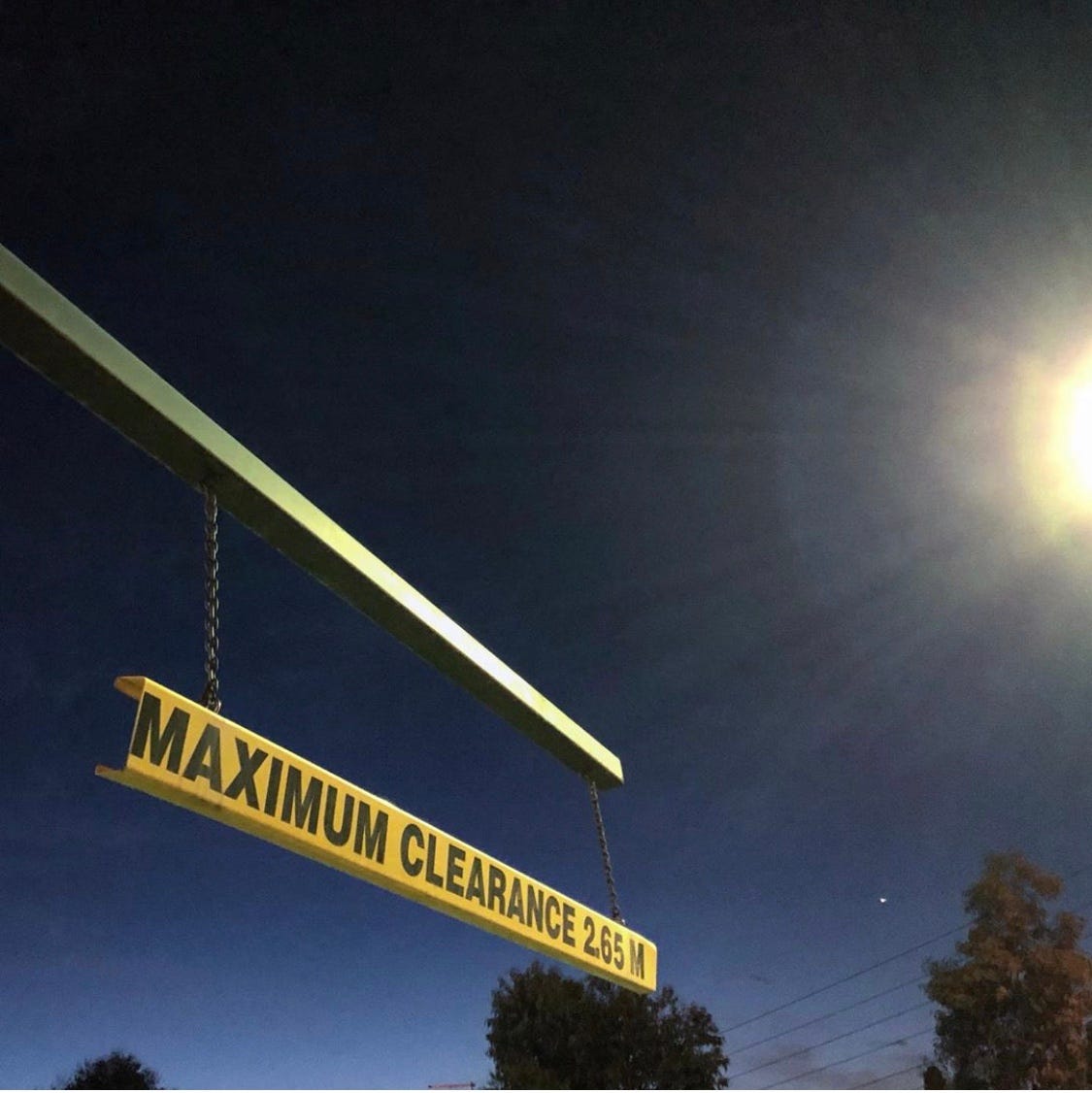
Waiting for the blackout
After a couple of hours, I’d finally had enough of that particular walk. I commenced the long trudge home.
I saw two figures heading towards me. It was the meth heads.
They blocked my way.
‘Got something sharp?’ the wiry one asked.
‘No.’
Of course, I remembered who they were, but I went along with the charade because I was frightened.
Fear was an unfamiliar emotion. Like I said, I have made myself oblivious to danger on these walks, but this time the veil had been lifted.
The bizarre nature of the deja vu encounter saw to that.
I doubted my sanity, because the exchange was identical.
The repetition made it seem freighted with apocalyptic omens.
My blood froze. I thought that it was some kind of test, that I’d been gifted a second chance at life.
I thought that the price of failure would indeed be ‘something sharp’, namely, a knife buried deep in my guts.
‘Got any piercings?’ he said. ‘Give me your fucking earrings, mate.’
‘I don’t have any.’
‘Show me your fucking ears.’
These two were in a far worse state than me. Completely gone. I realised that they had absolutely no memory of our previous encounter.
That gave me hope. All I had to do was play it cool and follow the script.
I showed him my ears. They were unadorned, just like the last time.
‘Fucking idiot,’ he said.
‘Sorry, mate. Have a good night.’
They walked away.
‘Oi!’ the wiry one shouted, over his shoulder.
I turned around.
‘Don’t be so fucking rude next time, alright?’
This time, I was grateful for the warning. Because it made me think.
Perhaps I have been rude all my life, without ever really realising it.
Closed off, negative, nihilistic, anti-life.
Dark, morose, entitled, depressed.
Selfish, cynical, vexed, possessed.
That’s certainly rude behaviour. It’s beyond rude. It’s death warmed up, a rotting corpse, an offensive stench.
All my life, people I care about, when confronted with that deathwards stench, have washed their hands of me and walked away.
Not this guy. Not the ice head.
He could’ve jumped me and no one would’ve seen it. It was dark, after midnight. No one was around. No homes, no cars, no people.
Just the humming pylons and the bleak overpasses and the train track to nowhere.
One wrong look, one misinterpreted body signal, and I might’ve found myself bleeding out on a concrete apron deep inside the northern wastes.
But instead he warned me.
I didn’t listen the first time, so he tracked me down and warned me again. If I hadn’t listened the second time, maybe there wouldn’t have been a third time.
By then I’d be face down on that apron, breathing my last.
III
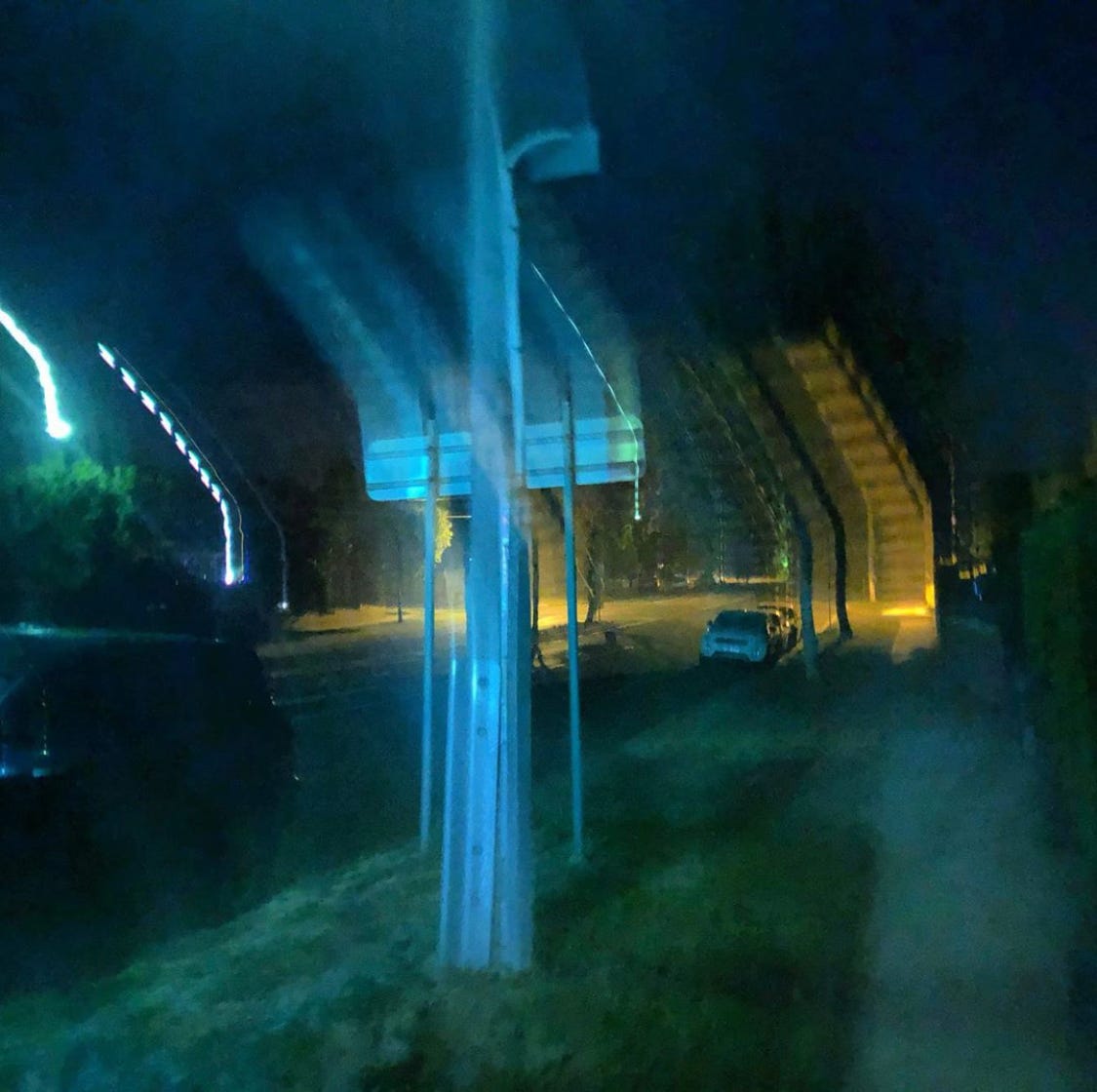
Sign of the cross
I haven’t been on a night-time drift since I met the ice heads, though I remain compelled to walk.
These days, I commence my walks around 3pm and return before dinner. It’s so civilised, it kind of repulses me, but I’m going with the flow.
On Instagram, I habitually post photos from my walks. Without fail, they are exceptionally grim.
Never any people. Hyper-saturated power stations and garish ugly industry. Abandoned toys, torn and ripped. Burnt-out cars. Lens tricks flaring the emissions from street lamps, turning them into horror-film hues.
And the darkness, always the darkness, a fire-blanket of unrelenting gloom from the jet-black night.
I was so in love with the aesthetic, I thought of the detritus I photographed as ‘islands of beauty in a vast ocean of scum’.
The other day, I posted three photos from my latest afternoon walk. The injection of daylight into these images was startling. It warped the colours, the textures, the fabric of reality. I saw with new eyes. I saw the wider world, at long last.
For once, I did not see me.
Although there are still no people in my photos, the bright change in atmosphere signals an approximation of life.
As much as I hate to admit it, because it runs contrary to everything I’ve tricked myself into believing about my world, I think the people will arrive soon.
I think I will be ready and prepared.
No more sneak attacks, no more amputations.
That, at least, is the plan.
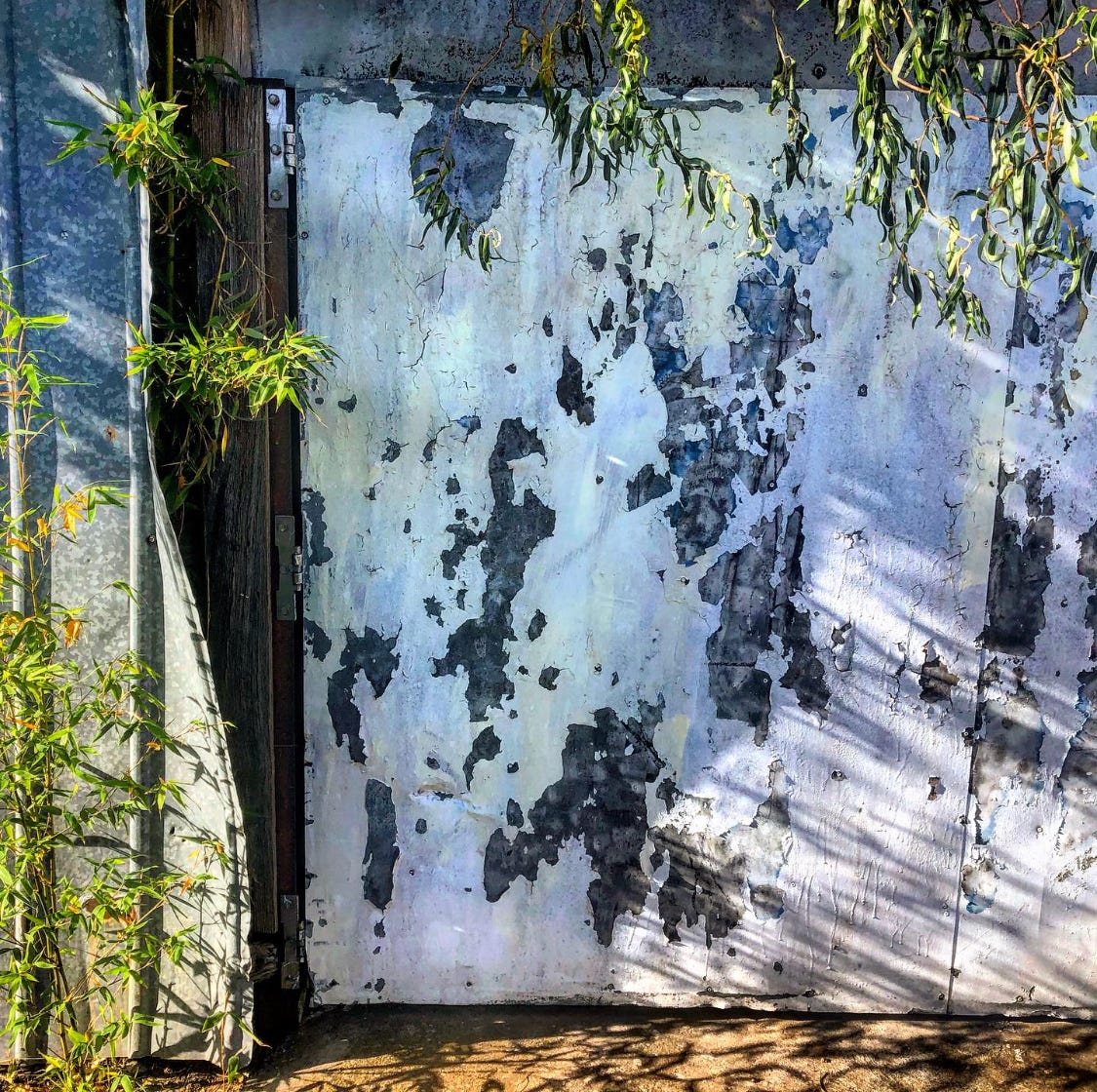
The Light
If you’re interested, here’s a reading I did of the edgelands sequence in Applied Ballardianism for Urbanomic’s PlaguePod broadcast. The backing track is a melange of works by the Australian sound artist Alan Lamb and collaborators. See the Soundcloud page for more information.
